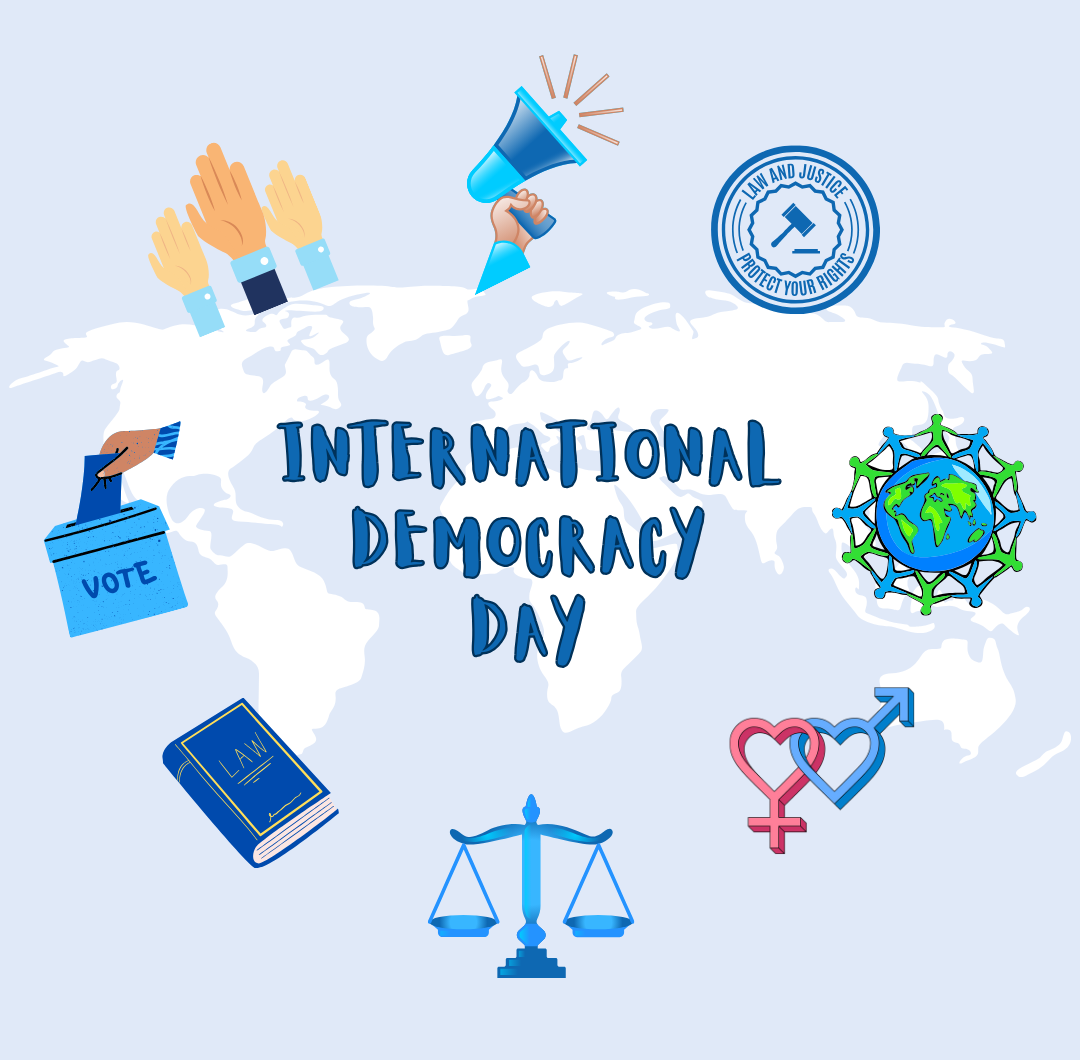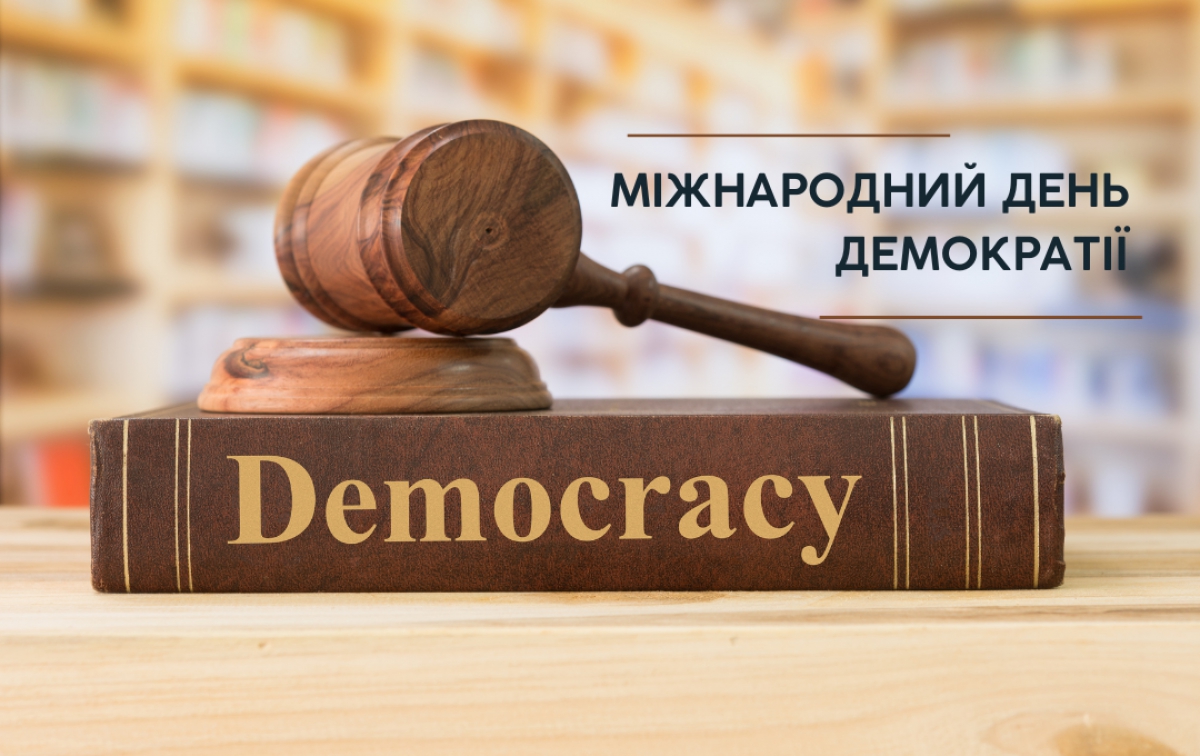Eduard Abashia, a lecturer at the Department of Psychology at the Dnipro Institute of PrJSC "IAPM", a legal expert, psychologist at the Amur-Nizhnodniprovskyi District Department of the State Institution "Probation Center" branch in Dnipropetrovsk region, and a member of the International Association of Psychologists and Consultants for Sexual Education, informs about the following. The International Day of Democracy is celebrated worldwide on September 15 every year. It was established by a resolution adopted by the UN General Assembly in 2007, with the aim of promoting and supporting the principles of democracy and providing an opportunity to analyze the state of democracy in the world. This day was first celebrated in 2008.
Democracy is not so much a goal as it is a process, and only with the full participation and support of the international community, national authorities, civil society, and individuals can the ideal of democracy become a reality that everyone can enjoy everywhere.

The UN strives to achieve its goals - peace, human rights, and development. It believes that human rights and the rule of law are best protected in democratic societies. The UN also recognizes the fundamental truth about democracy worldwide - that democracy is a product of a strong, active, and vocal civil society.
The International Day of Democracy reminds us of the importance of building a democratic and organized society where the rights and freedoms of all citizens are respected and protected.
In times when democratic values are being tested, we emphasize the need for persistent work on changes in the state and society to approach the standards of democracy, human rights, and the rule of law that exist in developed countries of the European Union.

The citizens of Ukraine need more justice, which can only be provided by functional democratic institutions, meaning significant reforms in the areas of democracy and the rule of law, human rights, strengthening independent institutions, freedom of the media, strengthening parliamentarism and democratic political culture, genuine fight against corruption, where not only those who receive bribes are prosecuted, but also those who give them.
The democratization of society should be an inclusive process that involves citizens, especially youth, in public dialogue and decision-making that will affect their lives now and in the years to come.
We advocate for the sustainable development of a society where there is no place for violence and all citizens feel protected and safe, where principles of solidarity and tolerance, professionalism, understanding the importance of fighting poverty, gender equality, environmental protection, social integration, and improving the situation of vulnerable social groups prevail.
That is why it is important that we consistently follow the European path, which we have taken precisely to organize our country according to the model of Western European countries, with a controlled government, independent judiciary, countries where political tolerance prevails, human rights, freedoms, and dignity are respected, media is free, and the judicial system and public administration are not subject to corruption, bribery, abuses of various kinds, etc., - the psychologist noted.
 Eng
Eng  Укр
Укр 